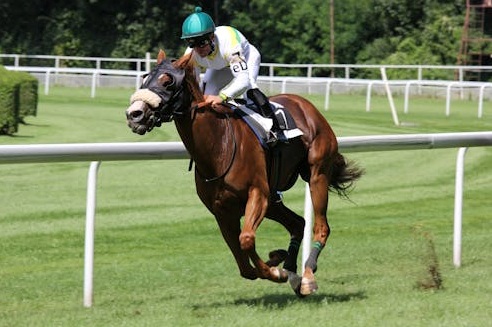Horse racing is an ancient sport, and several of the world’s top meetings can trace their history back over hundreds of years. It’s enduringly popular and, in the present day, interest in racing extends across the world.
The UK is one of horse racing’s main centres, and it’s become part of the sporting framework across the region. Horses, owners and trainers all play a part in wins and losses, but racing needs the men and women in the saddle to steer those runners over the line.
Keep on Running
 As we’ll shortly see, a jockey’s life can be a gruelling one at times, but there is clear motivation for those riders to keep going. This is a lucrative sport and one where all competitors are compensated for their efforts.
As we’ll shortly see, a jockey’s life can be a gruelling one at times, but there is clear motivation for those riders to keep going. This is a lucrative sport and one where all competitors are compensated for their efforts.
A jockey with a full list of rides at any meeting can expect to earn a basic £700 a day for racing on the flat. For National Hunt events, that figure climbs to £1,000. Those are flat sums, so any prize money earned by the jockeys is in addition to those basic fees.
The top riders, those whose mounts regularly feature at the top of horse racing odds markets, can potentially earn seven-figure sums annually. Any jockey failing to land a winner across the calendar may achieve a more modest income, but clearly the incentives are there to improve and join the racing elite.
There’s also the prestige of performing as a professional athlete, but achieving those levels means making some serious sacrifices.
Making the Weight
A jockey has to continually watch their weight across a season. There are weight restrictions in horse racing, and a rider’s slight frame means that they can often weigh as little as 50 kgs. This requires light meals across the day, and balancing a healthy diet is crucial for success.
In order to maintain those levels, jockeys also have to undergo key dehydration techniques. Typically, they will keep their water intake to a minimum, and if they are battling to hit their riding weight, a jockey may spend extended periods in a sauna to get those pounds off.
For everyday people, such a diet is considered unhealthy, but a jockey with peak fitness levels can continue to compete after following these restrictions.
Early to Rise
A jockey’s day begins before most of us have woken up. In order to be competitive ahead of an upcoming race, it’s essential to get some riding hours in. That’s why you will see riders on the gallops in the early hours of the morning, sometimes before sunrise.
This allows the jockeys an opportunity to acquaint themselves with new horses and become familiar with their forthcoming mounts. Early morning runs may also help a rider to recover following any injury or other layoffs from the course.
Riding out is a form of exercise, and it also helps to develop skill, so this is a vital part of any jockey’s life.
Race Day
Once all of the preparation is done, it’s time to get in the saddle. We’ve seen the top riders arrive at racecourses via helicopter, but not everyone has access to the fastest forms of transport.
Travelling to race meetings may involve long hours on the motorway to get to courses around the UK and beyond. When they arrive, all jockeys will start their racing day by assessing the course and the ground conditions. Next, they will weigh in to confirm that their strict dieting regime has paid off.
A jockey will then meet with the trainers of each horse to discuss tactics for the race ahead. Their approach to the event will depend on the level of competition and the horse’s ability to either make a late charge, or hit the front early on.
As the race approaches, jockeys will join their horses in the parade ring. This is the point where they will begin to mentally focus on the task ahead. The race is completed, and whether the jockey has won or lost, their work isn’t over.
Each jockey must weigh in again to confirm their weight during the race. If they are competing later in the day, the whole process will begin again. If their race schedule is over, it’s likely that each rider will return home and work through their individual rest and recovery regime.
Jockeys get little time to relax and even when the racing season is over, they will need to maintain those crucial diet and fitness levels. Days become filled with training and riding over the gallops.
It may seem like a punishing schedule, but any successful jockey can reap the benefits of their skills. Seven-figure earnings are not uncommon for those at the top of their profession, so the incentive is there to make those sacrifices and battle their way through the ranks.
